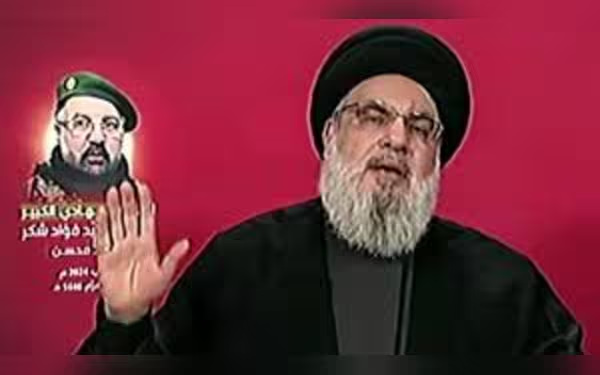Wednesday, January 15, 2025 11:49 AM
Escalating Tensions Following Targeted Killings Of Hezbollah And Hamas Leaders
- Hezbollah vows strong retaliation against Israel.
- Key leaders' deaths heighten fears of regional conflict.
- International community urges resolution to prevent violence.
 Image Credits: thefrontierpost
Image Credits: thefrontierpostTensions escalate in the Middle East after the killings of Hezbollah and Hamas leaders, prompting fears of a broader regional conflict.
In recent developments in the Middle East, tensions have escalated significantly following the targeted killings of key military leaders from Hezbollah and Hamas. The situation has become increasingly volatile, with fears of a broader regional conflict looming. Hezbollah’s chief, Hassan Nasrallah, has publicly stated that both his group and Iran feel “obliged to respond” to Israel, regardless of the potential consequences. This statement comes in the wake of the deaths of Hezbollah military commander Fuad Shukr and Hamas leader Ismail Haniyeh, which have heightened fears of an all-out war.
Last week, an Israeli airstrike in the southern suburbs of Beirut resulted in the death of Fuad Shukr, a significant figure in Hezbollah’s military operations. Shortly after, Hamas’s political chief, Ismail Haniyeh, was killed in an attack in Tehran, which has been attributed to Israeli forces. Although Israel has not officially commented on Haniyeh’s death, the implications of these killings have sent shockwaves throughout the region. Nasrallah emphasized in a televised address that Hezbollah would retaliate, stating that their response would be “strong and effective.” He also mentioned that the group might act independently or in coordination with other Iran-backed factions in the region.
As the situation unfolds, the fear of a larger conflict grows. Nasrallah warned that Israel’s delay in responding to these events is part of the ongoing battle and a form of punishment. He accused Israel of choosing escalation and attacking Iran, which adds another layer of complexity to the already tense situation. The ongoing exchanges of fire between Israel and Hezbollah since the October 7 attack by Hamas on Israel have only intensified the conflict.
The recent killings of key leaders have not only escalated tensions between Israel and Hezbollah but have also raised concerns about a potential regional war involving multiple factions. As both sides prepare for possible retaliation, the international community watches closely, hoping for a resolution to prevent further violence. Understanding these developments is crucial for grasping the complexities of Middle Eastern politics and the ongoing struggle for power and influence in the region.













